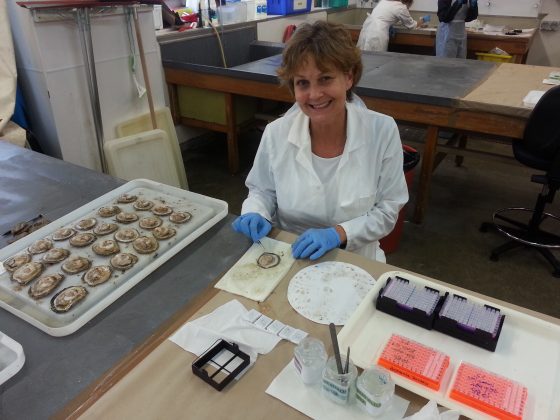Paekākāriki School – Debbie Ayres

2017 | Science with NIWA: from Marine Invertebrates to Atmospheric Gases
School: Paekākāriki School
Host: National Institute of Water and Atmosphere (NIWA)
Region: Wellington
The 150 students at Paekākāriki School on the Kapiti Coast are naturally curious and inquisitive participants in an outdoor environment that includes beaches, the sea, a marine reserve, sand dunes, rock pools, hills, streams, bush, wetlands and farms. Paekākāriki School staff are keen to develop a local curriculum with strong scientific thinking and practice components to both nurture the students’ interest in environmental science, and prepare them to be scientifically-literate citizens.
Debbie was a teacher at Paekākāriki School for 6 years prior to participating in the 2017 Science Teaching Leadership Programme. She has also worked in many other education sectors including university and government, and she is an experienced researcher with a PhD. She is passionate about science and education.
The Programme has provided Debbie with the knowledge and skills to support, inspire and lead staff members to: (i) build a culturally-responsive, science-focused curriculum; and (ii) grow as teachers who have the skills, knowledge and confidence to support students to develop science capabilities.
Debbie was hosted by the National Institute of Water and Atmosphere Research Centre in Wellington (NIWA). NIWA is a Crown Research Institute that specialises in marine, freshwater and atmospheric research, and Debbie was fortunate to experience working on activities in many diverse areas of NIWA’s science. These included:
- working with the Atmospheric Chemistry team in their research on identification and measurement of greenhouse gases in the atmosphere and ice cores. She went to Baring Head Clean Air Station to help collect clean air samples for both NIWA’s own research, and for providing to other atmospheric science centres around the world. The practicalities of working with gases were demystified for her, and she learned about gas chromatographs and mass spectrometers, i.e., machines used to separate and measure various gases.
- working with the Marine Invertebrate Collection team on re-housing the collection of dry specimens. She has learned about the science of taxonomy and collections, and of the importance of taxonomic collections like NIWA’s to health, conservation, biosecurity, culture and identity, sustainability, the economy, and research both in New Zealand and globally.
- working with the Marine Ecology team on contracted monitoring of the health of various oyster fisheries in New Zealand. This involved Debbie extracting tissue for DNA analysis of oysters to check for the presence of bacterial parasites.
- helping with regular monitoring of the red rock lobster fishery by counting puerulus (larval lobsters) in crevice collectors at Riversdale and Castle Point.
Significantly, throughout her time and experiences at NIWA, Debbie acquired a deepening understanding of the grave situation that global warming of the Earth presents to all living organisms and the world as we know it. The certainty that man’s pollution, for over two hundred years since the industrial revolution, has caused global warming, has become a prime source of motivation for ensuring our school students are science-literate.
Debbie would like to thank Dr Julie Hall and the staff at NIWA Wellington, The Royal Society Te Apārangi and Paekākāriki School for the parts they played in generously providing this valuable professional learning.
